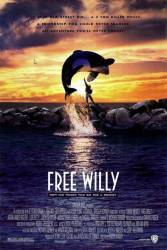
Question: In reality, do orcas actually understand English? Willy seems to understand Jesse when Jesse teaches him tricks.
Answer: Dogs can learn words up to the level of a 3 yr old, and whales are smarter than dogs, so definitely.
Dogs don't learn words, they start to recognize the sound that comes with a certain word like "stay" or "fetch", it's got more to do with the intonation than the actual word. They don't know what the word actually means. They can't imitate it nor can they recognize it in a sentence.
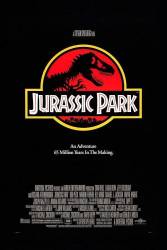
Question: Are the people present at the digging site when they're discussing new approaches to analyzing skeletons supposed to be paleontologists in dr. Grant's group? If so, why would they laugh at his musings of "how dinos learned how to fly"? And why would he have to explain it to them? Seemed to me like he is explaining very basic stuff to the people that would already know this (and of course, to the movie audience).
Answer: They are not paleontologists, just people interested in dinosaurs. It is common for museums and other scientific organizations to offer the general public an opportunity to participate in a real paleontology dig. For a fee, they become an exhibition team member for a period of time, learn about dinosaurs, help excavate fossils, and so on. This is likely how Dr. Grant (or his institution) supplements his research funding.
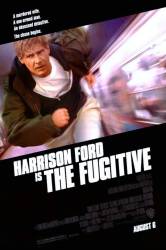
Question: At the very end, what was in the plastic bag that Tommy Lee Jones' character gives to Harrison Ford?
Answer: It's a cold compress. You squeeze it, and the inner bag breaks mixing chemicals and it gets very cold. It helps to minimize swelling. He gave it to Kimball for all the bruises he had.
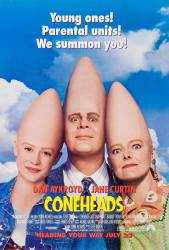
Question: Why does Mrs Conehead begin screaming when she sees the eggplant in the grocery store?
Answer: Because they resemble infant coneheads. To her, it would appear that they were selling babies.
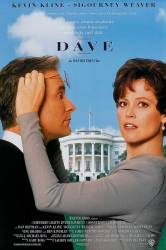
Question: Is there an alternate ending? Did Ving Rhames ever wear a sweater in the last scene?
Answer: I have repeatedly told people he wore a sweater. There has to be one, more original, that has him in a sweater. I remember almost like a Easter yellow.
It should be noted Rhames does wear what looks like a yellow sweater in "Pulp Fiction." Although I wouldn't call it Easter Yellow.
I saw Ving Rhames in a navy crewneck sweater in the closing shots of this film.
I also can swear I saw an ending with Ving Rhames wearing a sweater. This would be in keeping with Klein asking him earlier in the film if he ever wears sweaters.
Answer: My wife and I also believe that Agent Duane Stevenson wore a sweater at the end of the movie on the VHS version. The DVD version switched Duane with suit, white shirt and tie - no sweater.
Answer: I saw Ving Rhames in a navy crewneck sweater at the end of movie shot.
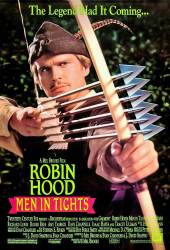
Question: When Abbot is walking down the aisle at the wedding, everyone says "Good morrow Abbot", but one guys says "Hey Abbot!" and Abbot says "I hate that guy!" Is this a reference to something? I never got the joke.
Chosen answer: The scene is an homage to the late, great comedy team, Abbott and Costello. Bud Abbott was the straight man and Lou Costello was the goofy laugh-getter. Part of their act was Costello getting frustrated trying to understand Abbott and yelling "hey Abbott" at him.
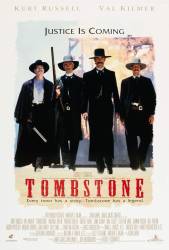
Question: What did Doc mean when he said "It's not revenge he's after. It's the reckoning"?
Chosen answer: A reckoning is like a judgment day, exacting retribution for one's actions. Doc was very well educated and had a very large vocabulary. He was correctly pointing out the subtle difference between revenge (to make Wyatt feel better about losing Morgan and about Virgil's crippling injury) and the fact that Wyatt was bringing about a judgment day (or reckoning) for each of the men who hurt his family.
Answer: I've spent a lot of time thinking about this very question, and here's what I've come up with. I think there are at least two differences between revenge and a reckoning. First, I think it has to do with the scale of the response to an offending action. Revenge, in my mind, is an eye for an eye, i.e, "You killed my brother and wounded another, so I will inflict the same action on your family (or group, gang, whatever). " A reckoning is less a measured response to an offending action and more of a full-scale punishment, i.e, "You killed my brother and wounded another, so I will now slaughter your entire family-including those who were not directly responsible for the offending action." Second, I think there is also a difference in motivation. Revenge tends to be a very personal response to something, whereas a reckoning tends to be more of a response fueled by a need for justice. In Wyatt's case, it was both. He was enraged by what happened to his family, but was also a lawman.
Thank you for this response! I've only seen Tombstone a million times and asked the same question every time. It's hard to separate the difference between the two but I believe you nailed it. Well done.
I'm thinking the opposite in terms. Revenge is "Reflexive" and is generally any means necessary (out of an abundance of pain or rage) to hurt the other party. "Revenge is a dish best served cold." If one is exacting justice there's no need to be cold hearted. Therefore, Reckoning is (to me) a fair balancing of the "scales" hence "an eye for an eye." Not only consequences of actions as it were but a corrective action to an incorrect circumstance. Just my understanding.
The problem with that theory is there is no difference in the end because the end result was the same...the killing. True reckoning could have only been achieved though the apprehension and punishment by trial and jury, anything other than that is simply revenge.
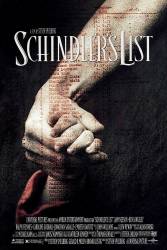
Question: Does anyone know the name of the song which is playing on the radio in the beginning of the movie, when Schindler is getting dressed for the party?
Answer: "Gloomy Sunday".
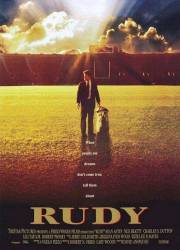
Question: What is the name of the actor who plays Notre Dame player 75, last name Mateus? I can't find him in the credits. He's the guy who starts chanting "Rudy" during the Georgia Tech game. I know Al Snow aka Allen Sarven plays an uncredited Notre Dame player in the movie, but it is not him - I have seen pics of Al Snow, and he is NOT the guy. There is more than one uncredited Notre Dame player in the film. (I have posted this question before, and the reply was Al Snow, so please don't answer this unless you actually know who the actor is. Thank you.)
Answer: According to the Trivia section (as well as some web searching) it seems to be Peter Rausch, an ex-Notre Dame football player.
Answer: Peter Rausch had already completed his NCAA eligibility by the time the movie started filming. He can be seen wearing the number 75, starting the "Rudy" chant from the field. His character's name is "Steve."
Answer: His real last name is Mateus. He and several Western Michigan University football players were cast in the film. I know this for fact because I worked at Scott's iron Campus in Kalamazoo, Michigan. He and several of his friends were close friends with the owner and were in the restaurant almost daily. They also built a loft bed for me in the dorms.

Question: At the end of the movie, it shows Benny managing to steal home, being called safe, the catcher arguing that Benny was out and the umpire saying Benny was safe. In slow motion, it shows the catcher catching the ball and tagging Benny as he slides into home so why wasn't Benny called out?
Answer: The umpire got the call wrong in that case. It happens all the time in real life. It wasn't allowed back then, but now Major League Baseball and other sports leagues will use instant replay to make sure they get close calls right.
Answer: The catcher tags Benny on the chest after he touches home plate with his left hand. Safe.
Answer: The film shows Benny beating the tag. Although the ball gets there before Benny, the catcher tags Benny a split second after his hand touches home plate.
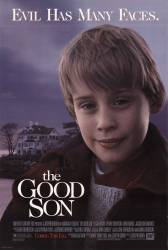
Question: Why would Henry do so many evil things to his own family?
Answer: Henry apparently has what is called a "conduct disorder" - the term used for kids below the age of 18 engaging in what would be (and most likely will become) a diagnosis of sociopathy/psychopathy (antisocial personality disorder) when he becomes an adult. He is "evil", highly manipulative, self-centered, without remorse or other true feelings, and probably incapable of forming loving or long-term attachments. Many sociopaths are believed to have above average intelligence and make good imposters, capable of fooling others because they come across as "charming."
Answer: Because he's nuts!
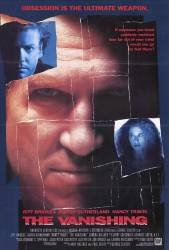
Question: Why is there someone (looks like a policeman) lying in the road when Jeff's girlfriend, Diane, vanishes from the service station? (00:22:00 - 00:24:00)
Answer: He is a crew member lying in the road directly behind the brown G.R.S. Dye Works semi-truck (presumably trying to remain hidden from the camera's view), and we even see his right hand waving off the traffic ahead of him (00:22:05).
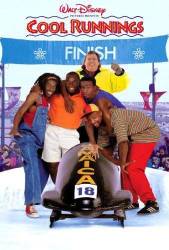
Question: Is it true that the Jamaica bobsled team performed poorly at first during training as shown in in the film?
Answer: The real Jamaican team performed poorly throughout the Olympics and did not finish.
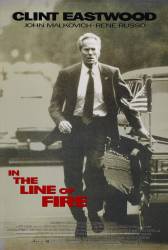
Question: After they search Leary's hotel room, they find a piece of paper that says "SW SKELLUM LA." We learn that the SW stands for Southwest (a bank he was using) and SKELLUM is a phone number. What does the LA mean?
Chosen answer: LA is short for Los Angeles, which refers to the city Leary attempts to assassinate the president in.
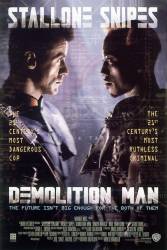
Question: I remember seeing this movie multiple times years back, and i distinctly remember the restaurant being Taco Bell, why the sudden badly dubbed pizza hut in the new television version?
Answer: A number of the European releases of the film replaced Taco Bell with Pizza Hut, as Pizza Hut has a significant international presence, whereas Taco Bell is relatively unknown outside the US, with very few restaurants. While most versions around these days keep the US original dialogue, the altered versions do occasionally crop up, particularly on television.
Answer: In South Africa we also had a version that called the restaurant Burger King. I just always assumed that they changed the name when a franchise offered them more money for product placement.
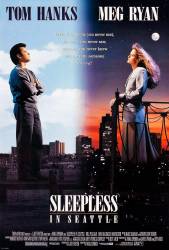
Question: What is the restaurant Annie and Walter are sitting in that looks out onto the Empire State Building?
Answer: That would be the Rainbow Room which is located at 30 Rockefeller Plaza (Annie rushes out the door and gets into the taxi), the iconic skyscraper in Rockefeller Center.
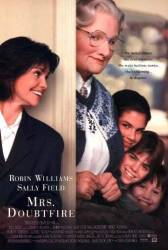
Question: When Daniel is calling home to apply for the job of housekeeper, why did he use different accents instead of just using the British accent instantly?
Answer: Daniel was pretending to be different people that were just all very horrible, so he used different accents. This way, when the "British nanny" calls, he was hoping Miranda would instantly consider him. If he called pretending to be Ms. Doubtfire right away, she might not have basically given him the job right away. And if he used the charming British accent for all his characters, it would have lost its charm when he decided to be Ms. Doubtfire.
Answer: He was just practising or trying it out, and took a while to think of it.
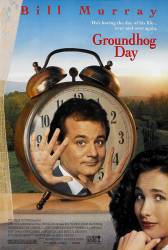
Question: Toward the beginning of the movie, on Phil's first day at the bed and breakfast, he turns on the shower and it is very cold. He asks the lady in the hallway why there is no hot water. The lady answers "Oh no, there wouldn't be any today." Why not?
Answer: Old fashioned hotels have a single boiler for all the hotel rooms. Once the hot water reservoir is used up there won't be any more to use until the reservoir is refilled. This only happens once every few days.
Answer: Likely because there are a lot of people staying there and using up the hot water.
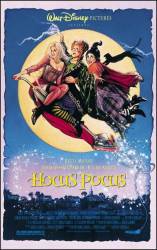
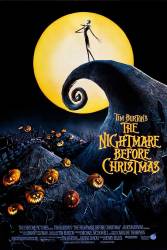
Answer: While sounds and words can be used to alert orcas and dolphins, they recognize the hand signals and movements as to what to do.
LorgSkyegon